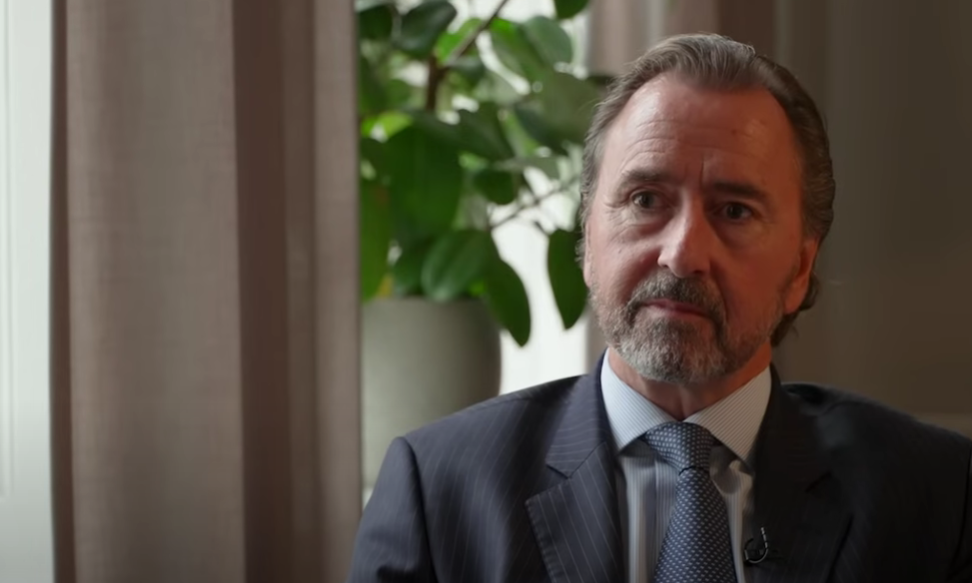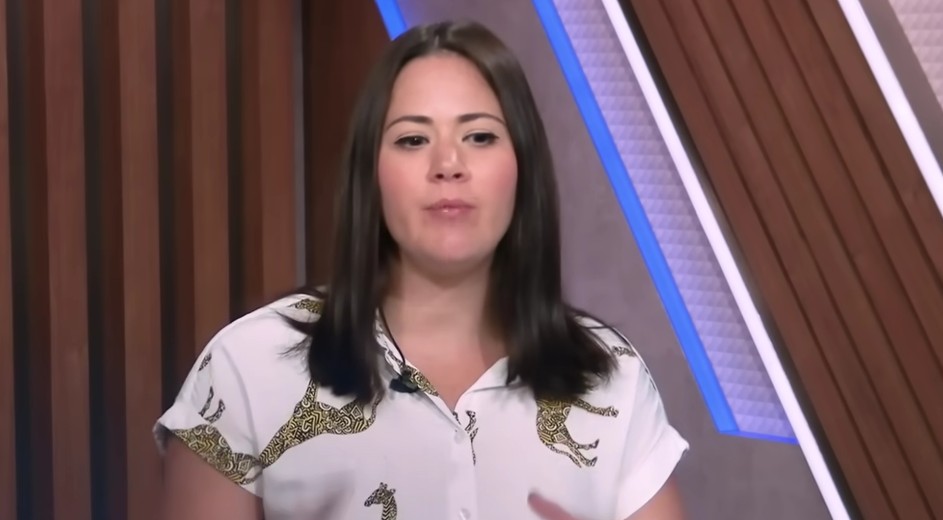Marknadsnyheter
Imfinzi plus bevacizumab met primary endpoint for progression-free survival in liver cancer eligible for embolisation in EMERALD-1 Phase III trial
First global Phase III trial to show improved clinical outcome for systemic therapy in combination with transarterial chemoembolisation (TACE) in this setting.
Positive high-level results from the EMERALD-1 Phase III trial showed AstraZeneca’s Imfinzi (durvalumab) in combination with transarterial chemoembolisation (TACE) and bevacizumab demonstrated a statistically significant and clinically meaningful improvement in the primary endpoint of progression-free survival (PFS) versus TACE alone in patients with hepatocellular carcinoma (HCC) eligible for embolisation. The trial continues to follow the secondary endpoint of overall survival (OS).
Liver cancer, of which HCC is the most common type, is the third-leading cause of cancer death with an estimated 900,000 people worldwide diagnosed each year.1,2 Approximately 20-30% of patients are eligible for embolisation, a procedure that blocks the blood supply to the tumour and can also deliver chemotherapy or radiation therapy directly to the liver.3-9 Despite being the standard of care in this setting, most patients who receive embolisation experience rapid disease progression or recurrence.10-14
Dr. Riccardo Lencioni, Professor and Director of the Cancer Imaging Program in the Department of Diagnostic and Interventional Radiology of Pisa University Hospital in Pisa, Italy, and principal investigator in the trial, said: “Patients with liver cancer eligible for embolisation experience high rates of progression or recurrence and do not have the opportunity for early intervention with effective systemic therapy. These results for durvalumab plus bevacizumab have the potential to reshape the treatment of this complex disease with a poor prognosis by showing for the first time that adding an immunotherapy combination to TACE significantly improves progression-free survival.”
Susan Galbraith, Executive Vice President, Oncology R&D, AstraZeneca, said: “These positive results for Imfinzi-based treatment in EMERALD-1 may bring the potential of immunotherapy to patients with earlier stages of liver cancer. We look forward to discussing these data with regulatory authorities and seeing the survival data mature over time, which will be important as we aim to bring this novel treatment option to patients.”
The safety profiles for Imfinzi and TACE plus bevacizumab were consistent with the known profile of each medicine, and there were no new safety findings.
The data will be presented at a forthcoming medical meeting and shared with regulatory authorities.
AstraZeneca has an extensive clinical development programme further assessing Imfinzi across multiple gastrointestinal (GI) cancer settings, including in combination with bevacizumab in adjuvant HCC (EMERALD-2) and in combination with Imjudo (tremelimumab), lenvatinib and TACE in embolisation-eligible HCC (EMERALD-3).
Notes
Liver cancer
Liver cancer is the third-leading cause of cancer death and the sixth most commonly diagnosed cancer worldwide.1-2 Asia holds more than 70% of the world’s new liver cancer cases.15 About 75% of all primary liver cancers in adults are HCC.1 Between 80-90% of all patients with HCC also have cirrhosis.16 Chronic liver diseases such as cirrhosis are associated with inflammation that over time can lead to the development of HCC.16 Immunotherapy is a proven treatment modality in HCC with approved options available for patients in later-line settings.17
EMERALD-1
EMERALD-1 is a randomised, double-blind, placebo-controlled, multicentre, global Phase III trial of Imfinzi plus TACE concurrently, followed by Imfinzi with or without bevacizumab until progression versus TACE alone in a total of 616 patients with unresectable HCC eligible for embolisation.
The trial was conducted in 157 centres across 18 countries, including in North America, Australia, Europe, South America and Asia. The primary endpoint was PFS for Imfinzi and TACE plus bevacizumab versus TACE alone, and secondary endpoints include PFS for Imfinzi plus TACE, overall survival, patient-reported outcomes and objective response rate.
Imfinzi
Imfinzi (durvalumab) is a human monoclonal antibody that binds to the PD-L1 protein and blocks the interaction of PD-L1 with the PD-1 and CD80 proteins, countering the tumour’s immune-evading tactics and releasing the inhibition of immune responses.
Imfinzi is approved in combination with chemotherapy (gemcitabine plus cisplatin) in locally advanced or metastatic biliary tract cancer (BTC) and in combination with Imjudo (tremelimumab) in unresectable HCC in the US, EU, Japan and many other countries based on the TOPAZ-1 and HIMALAYA Phase III trials, respectively.
In addition to its indications in GI cancers, Imfinzi is the only approved immunotherapy and the global standard of care in the curative-intent setting of unresectable, Stage III non-small cell lung cancer (NSCLC) in patients whose disease has not progressed after chemoradiation therapy based on the PACIFIC Phase III trial.
Imfinzi is also approved in the US, EU, Japan, China and many other countries around the world for the treatment of extensive-stage small-cell lung cancer (SCLC) based on the CASPIAN Phase III trial. Additionally, Imfinzi is approved in combination with a short course of Imjudo and chemotherapy for the treatment of metastatic NSCLC in the US, EU and Japan based on the POSEIDON Phase III trial. Imfinzi is approved in previously treated patients with advanced bladder cancer in a small number of countries.
Since the first approval in May 2017, more than 200,000 patients have been treated with Imfinzi.
As part of a broad development programme, Imfinzi is being tested as a single treatment and in combinations with other anti-cancer treatments for patients with SCLC, NSCLC, bladder cancer, several GI cancers, ovarian cancer, endometrial cancer and other solid tumours. In 2023, AstraZeneca announced positive results for Phase III trials including combinations with Imfinzi in ovarian (DUO-O) and endometrial (DUO-E) cancers, as well as in resectable NSCLC (AEGEAN).
In addition to the EMERALD programme across multiple liver cancer settings, AstraZeneca has ongoing registrational trials investigating Imfinzi in resectable gastric and gastroesophageal junction cancers (MATTERHORN) and in locally advanced oesophageal cancer (KUNLUN). In June 2023, Imfinzi added to standard-of-care neoadjuvant chemotherapy met a key secondary endpoint of pathologic complete response in the MATTERHORN Phase III trial.
AstraZeneca in GI cancers
AstraZeneca has a broad development programme for the treatment of GI cancers across several medicines and a variety of tumour types and stages of disease. In 2020, GI cancers collectively represented approximately 5.1 million new cancer cases leading to approximately 3.6 million deaths.18
Within this programme, the Company is committed to improving outcomes in gastric, liver, biliary tract, oesophageal, pancreatic and colorectal cancers.
In addition to its indications in BTC and HCC, Imfinzi is being assessed in combinations, including with Imjudo, in liver, oesophageal and gastric cancers in an extensive development programme spanning early to late-stage disease across settings.
Enhertu (trastuzumab deruxtecan), a HER2-directed antibody drug conjugate, is approved in the US and several other countries for HER2-positive advanced gastric cancer and is being assessed in colorectal cancer. Enhertu is jointly developed and commercialised by AstraZeneca and Daiichi Sankyo.
Lynparza (olaparib), a first-in-class PARP inhibitor, is approved the US and several other countries for the treatment of BRCA-mutated metastatic pancreatic cancer. Lynparza is developed and commercialised in collaboration with MSD (Merck & Co., Inc. inside the US and Canada).
AstraZeneca also recently entered into a global exclusive license agreement with KYM Biosciences Inc. for AZD0901. AZD0901 is a potential first-in-class antibody drug conjugate targeting Claudin 18.2, a promising therapeutic target in gastric cancer, currently in Phase I development.
AstraZeneca in immuno-oncology (IO)
AstraZeneca is a pioneer in introducing the concept of immunotherapy into dedicated clinical areas of high unmet medical need. The Company has a comprehensive and diverse IO portfolio and pipeline anchored in immunotherapies designed to overcome evasion of the anti-tumour immune response and stimulate the body’s immune system to attack tumours.
AstraZeneca aims to reimagine cancer care and help transform outcomes for patients with Imfinzi as a single treatment and in combination with Imjudo as well as other novel immunotherapies and modalities. The Company is also exploring next-generation immunotherapies like bispecific antibodies and therapeutics that harness different aspects of immunity to target cancer.
AstraZeneca is boldly pursuing an innovative clinical strategy to bring IO-based therapies that deliver long-term survival to new settings across a wide range of cancer types. With an extensive clinical programme, the Company also champions the use of IO treatment in earlier disease stages, where there is the greatest potential for cure.
AstraZeneca in oncology
AstraZeneca is leading a revolution in oncology with the ambition to provide cures for cancer in every form, following the science to understand cancer and all its complexities to discover, develop and deliver life-changing medicines to patients.
The Company’s focus is on some of the most challenging cancers. It is through persistent innovation that AstraZeneca has built one of the most diverse portfolios and pipelines in the industry, with the potential to catalyse changes in the practice of medicine and transform the patient experience.
AstraZeneca has the vision to redefine cancer care and, one day, eliminate cancer as a cause of death.
AstraZeneca
AstraZeneca (LSE/STO/Nasdaq: AZN) is a global, science-led biopharmaceutical company that focuses on the discovery, development, and commercialisation of prescription medicines in Oncology, Rare Diseases, and BioPharmaceuticals, including Cardiovascular, Renal & Metabolism, and Respiratory & Immunology. Based in Cambridge, UK, AstraZeneca operates in over 100 countries and its innovative medicines are used by millions of patients worldwide. Please visit astrazeneca.com and follow the Company on social media @AstraZeneca.
Contacts
For details on how to contact the Investor Relations Team, please click here. For Media contacts, click here.
References
- ASCO. Liver Cancer: View All Pages. Available at: https://www.cancer.net/cancer-types/liver-cancer/view-all. Accessed November 2023.
- WHO. Liver Cancer Fact Sheet. Available at: https://gco.iarc.fr/today/data/factsheets/cancers/11-Liver-fact-sheet.pdf. Accessed November 2023.
- Lin Y-J, et al. Treatment patterns and survival in hepatocellular carcinoma in the United States and Taiwan. PLoS ONE. 2020;15(10):e0240542.
- Park J-W, et al. Global patterns of hepatocellular carcinoma management from diagnosis to death: the BRIDGE Study. Liver Int. 2015;35(9):2155-2166.
- Henriksson M, et al. Treatment patterns and survival in patients with hepatocellular carcinoma in the Swedish national registry SweLiv. BJS Open. 2020;4(1):109-117.
- Wehling C, et al. Treatment stage migration and treatment sequences in patients with hepatocellular carcinoma: drawbacks and opportunities. J Cancer Res Clin Oncol. 2021;147(8):2471-2481.
- Fukuda H, et al. Differences in healthcare expenditure estimates according to statistical approach: A nationwide claims database study on patients with hepatocellular carcinoma. PLoS ONE. 2020;15(8):e0237316.
- Akada K, et al. Database analysis of patients with hepatocellular carcinoma and treatment flow in early and advanced stages. Pharmacol Res Perspect. 2019;7(4):e00486.
- Chon YE, et al. Hepatocellular Carcinoma in Korea between 2012 and 2014: an Analysis of Data from the Korean Nationwide Cancer Registry. J Liver Cancer. 2020;20(2):135-147.
- Cerban R, et al. Predictive Factors of Tumor Recurrence and Survival in Patients with Hepatocellular Carcinoma treated with Transarterial Chemoembolization. J Gastrointestin Liver Dis. 2018 Dec;27(4):409-417.
- Lencioni R, et al. Sorafenib or placebo plus TACE with doxorubicin-eluting beads for intermediate stage HCC: The SPACE trial. J Hepatol. 2016 May;64(5):1090-1098.
- Golfieri R, et al. Hepatocellular carcinoma responding to superselective transarterial chemoembolization: an issue of nodule dimension? J Vasc Interv Radiol. Apr;24(4):509-17.
- Kudo M, et al. Brivanib as adjuvant therapy to transarterial chemoembolization in patients with hepatocellular carcinoma: A randomized phase III trial. Hepatology. v;60(5):1697-707.
- Lencioni R, et al. Lipiodol transarterial chemoembolization for hepatocellular carcinoma: A systematic review of efficacy and safety data. Hepatology, 2016;64: 106-116.
- Liu Y, et al. Changes in the Epidemiology of Hepatocellular Carcinoma in Asia. Cancers (Basel). 2022;14(18):4473.
- Tarao K, et al. Real impact of liver cirrhosis on the development of hepatocellular carcinoma in various liver diseases—meta‐analytic assessment. Cancer Med. 2019;8(3):1054-1065.
- Colagrande S, et al. Challenges of advanced hepatocellular carcinoma. World J Gastroenterol. 2016;22(34):7645–7659.
- World Health Organisation. World Fact Sheet. Available at: https://gco.iarc.fr/today/data/factsheets/populations/900-world-fact-sheets.pdf. Accessed November 2023.
Marknadsnyheter
JRS chefsstrateg Torbjörn Söderberg om börsen framåt

JRS chefsstrateg Torbjörn Söderberg pratar med Jesper Norberg på EFN om börsens väg framåt. Man tar upp värderingar och makro, samt hur han själv väljer att agera.
Marknadsnyheter
Kreditkort skapar problem för USAs konsumenter – CNBC granskar

CNBC tittar närmare på hur kreditkort skapar problem för konsumenterna i USA som får betala räntor på upp till 36 %, och ovanpå det kommer nya avgifter. När det skapar så här stora problem blir det ett problem för ekonomin som helhet, det är inte bara ett individuellt problem.
CNBC granskar kreditkort och problemen de skapar
Vi skrev nyligen om rekordhög belåning hos investerare i USA. Det är samma sak här, när det är så många individer som är så hårt belånade blir det ett problem för hela aktiemarknaden.
Marknadsnyheter
Varför går det så dåligt för Las Vegas?

Det pratas mycket om att Las Vegas har blivit tomt. Det kommer färre besökare både från USA och utlandet, i en sådan omfattning att vägar som förut var fyllda med bilar nu är smidiga att ta sig fram på. De enda som fortsatt verkar komma är affärsresenärerna.
Las Vegas får mycket kritik för att ha blivit för giriga. Hotellen har börjat lägga på alla möjliga konstiga avgifter för att tjäna mer, restaurangerna lägger på avgifter och dessutom har det tillkommit flera nya skatter. Besökarna känner sig lurade.
-
Analys från DailyFX10 år ago
EUR/USD Flirts with Monthly Close Under 30 Year Trendline
-
Marknadsnyheter5 år ago
BrainCool AB (publ): erhåller bidrag (grant) om 0,9 MSEK från Vinnova för bolagets projekt inom behandling av covid-19 patienter med hög feber
-

 Marknadsnyheter3 år ago
Marknadsnyheter3 år agoUpptäck de bästa verktygen för att analysera Bitcoin!
-
Analys från DailyFX12 år ago
Japanese Yen Breakout or Fakeout? ZAR/JPY May Provide the Answer
-

 Marknadsnyheter2 år ago
Marknadsnyheter2 år agoDärför föredrar svenska spelare att spela via mobiltelefonen
-
Analys från DailyFX12 år ago
Price & Time: Key Levels to Watch in the Aftermath of NFP
-
Analys från DailyFX8 år ago
Gold Prices Falter at Resistance: Is the Bullish Run Finished?
-

 Nyheter7 år ago
Nyheter7 år agoTeknisk analys med Martin Hallström och Nils Brobacke

